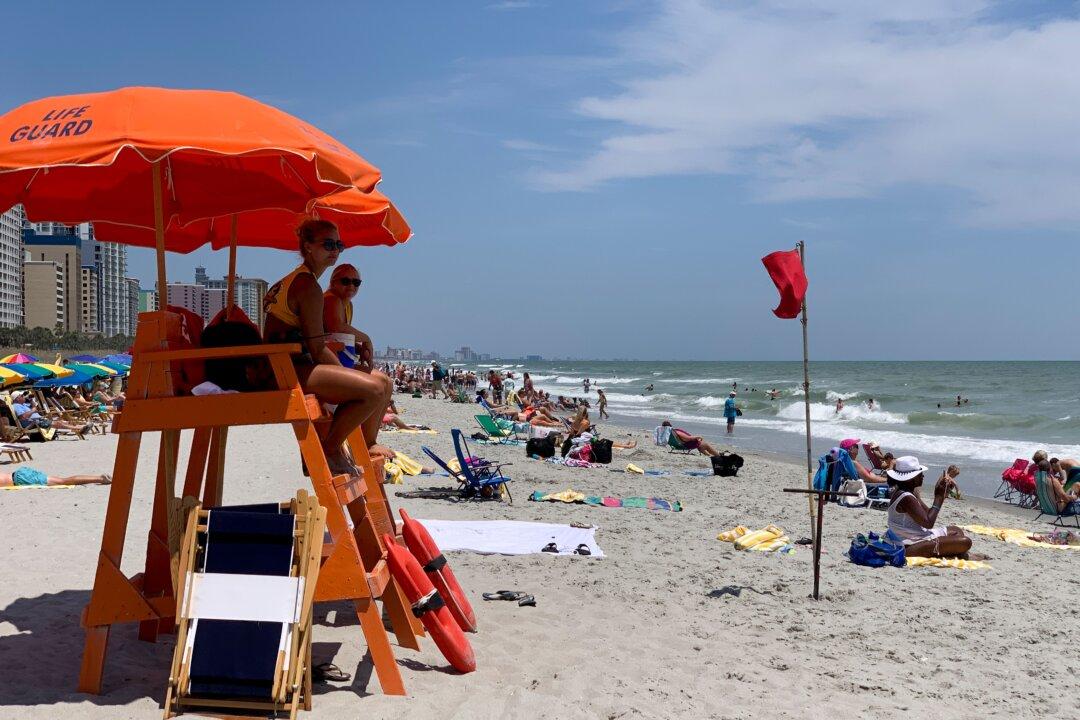A nationwide lifeguard shortage threatens to shut down beaches and pools ahead of the busy summer holiday season, experts have warned.
Across the United States, roughly 50 percent of 309,000 public pools could be forced to close or reduce their hours if they do not find adequate staffing, Wyatt Werneth, spokesman for the American Lifeguard Association (ALA), told NPR.




